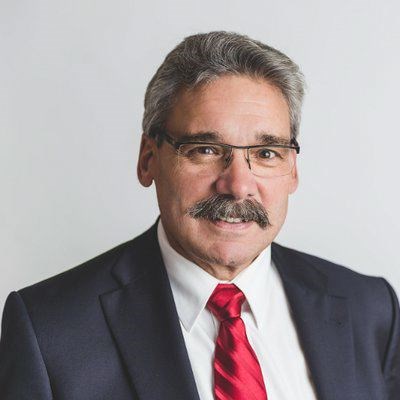Two researchers who have spent their professional careers revitalizing First Nations' languages say that recent comments by Prince George-Mackenzie MLA Mike Morris reflect a misunderstanding of the importance of preserving these languages.
Following the release of the first full budget by the BC NDP government, Morris took issue with a planned $50 million investment in indigenous language programming for the 2018 fiscal year. In an interview last Saturday with 94.3 The GOAT's Jeff Slack, Morris suggested the money would be better spent on law enforcement personnel in First Nations communities. Morris' critic role is public safety.
"They're spending 50 million dollars on indigenous language preservation, which I think is important, but at the same time the 50 million dollars would have paid for a couple of hundred extra police officers in rural BC and in our First Nations communities to help address the sexual violence and domestic abuse we have in those communities," Morris said in the interview with 94.3 The GOAT.
The comments drew condemnation from First Nations activists and leaders. News of Morris' interview began circulating through social media after the left-wing Press Progress news site posted his remarks. The story was later picked up by CBC and GlobalTV. The First Nations Summit, a collection of 150 First Nations, condemned the remarks in a media release.
"Mr. Morris' insensitive comments show a complete lack of understanding of the importance of Indigenous language and culture, particularly in BC, which is home to sixty percent of Indigenous languages in Canada," the release said.
Judy Thompson, or Edōsdi, is the director of the Tahltan language cultural program, with the Tahltan Central Government. She has worked on revitalization programming for the Tahltan language for several years, and is also an assistant professor of First Nations Studies at UNBC.
Thompson believes that the destruction of indigenous languages is linked with many of the social problems that Morris spoke of in his interview.
"A lot of those things that he was speaking about were caused by the theft of our language and our culture," Thompson said.
"There's a lot of shame that goes with that."
Thompson said one of the effects of the residential school system was a deliberate extinguishing of indigenous languages from an entire generation. She said many of the social ills that have beset local First Nations communities, such as high rates of incarceration of indigenous youth and domestic abuse, relate to inter-generational trauma and a lack of identity.
"You have to look at the roots of the tree. And that is colonization," she said.
Indigenous languages were specifically identified in the recommendations of the Truth and Reconciliation Commission, which called for the establishment of an Aboriginal Languages Act to preserve and revitalize indigenous languages.
Bill Poser, a linguist and author of "A Carrier Language: A Brief Introduction," has spent years documenting the Carrier language. He said that the window for preserving indigenous languages is rapidly closing due to the fact that very few young people speak them.
"If we don't do it now, it will be never," Poser said in reference to language preservation efforts.
"All of the native languages in BC, with the exception of a few up in Treaty 8 that spill up into elsewhere - Cree and Slave - there are no children who speak these languages."
Poser said the work of bringing a language back from the brink of extinction is a huge task. A first task, documentation of the language, must be undertaken with the writing of dictionaries and the development of teaching curricula. Programs need to be established for young speakers to be immersed. Finally, a new generation of speakers need to be convinced to pass the language onto their children.
"At this point, we're not really doing a good job of the first thing."
Poser said the planned funding from the 2018 budget was a positive sign, but was unsure whether the plan of revitalization was feasible.
"I'm skeptical as to whether they'll be able to do it in many cases. It hasn't been done many times," he said.
Thompson has been leading efforts in her community to revitalize the Tahltan language. She has worked with the Tahltan Central Government to create a governance framework for language programming, and has worked to establish what she calls 'language nests,' places where babies and infants can be immersed in the language in the presence of an elder. She is also developing curriculum for School District 87 in Stikine for the language, as well as for mentor-apprentice programming at UNBC.
This work has received funding in the past from the First Peoples' Cultural Council, which will be the primary recipient of the $50 million from the province. The council is the coordinating body for indigenous language programming in B.C.
She has been motivated to continue this work because of the insight it has given her into her own culture and history.
"As I've started learning my language, when you start to get your language back, there's so much identity you get back," she said.



